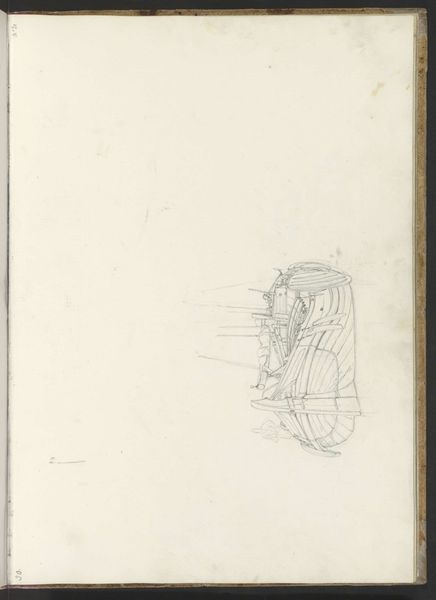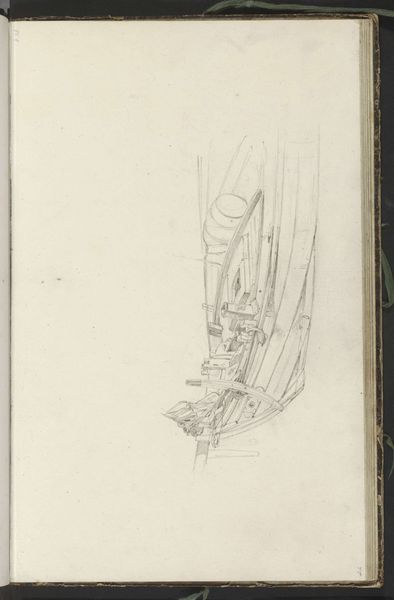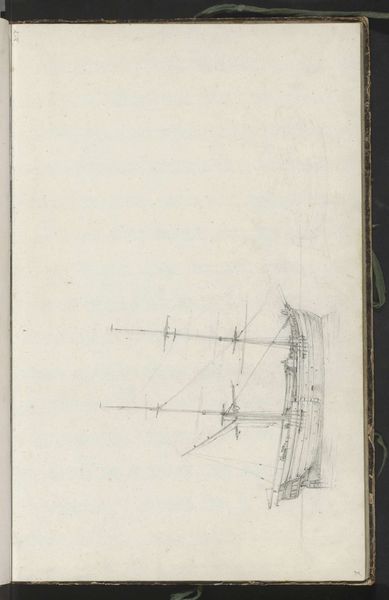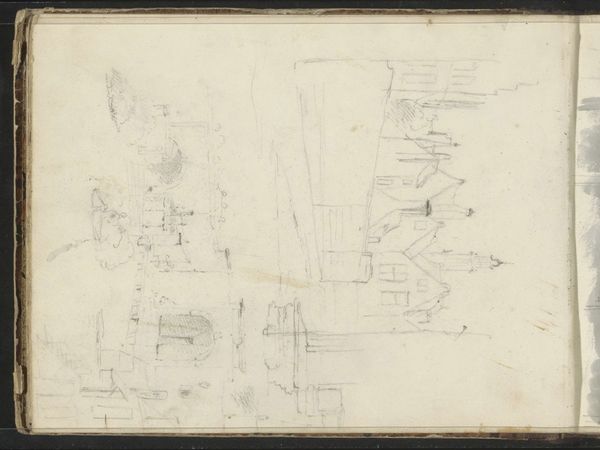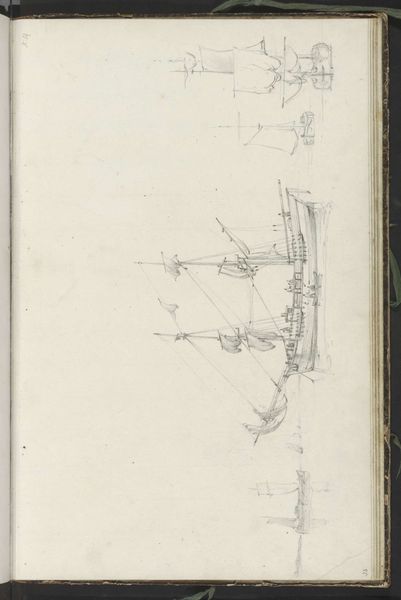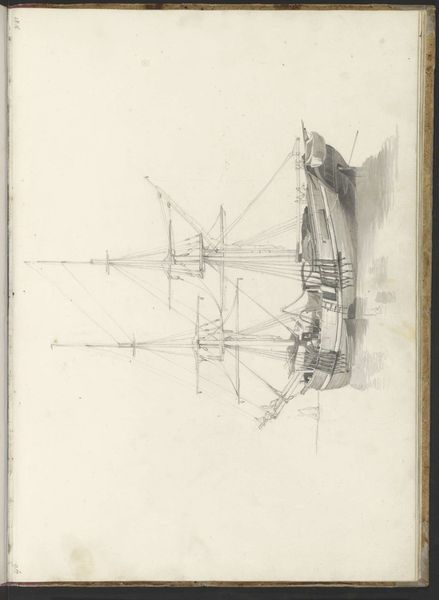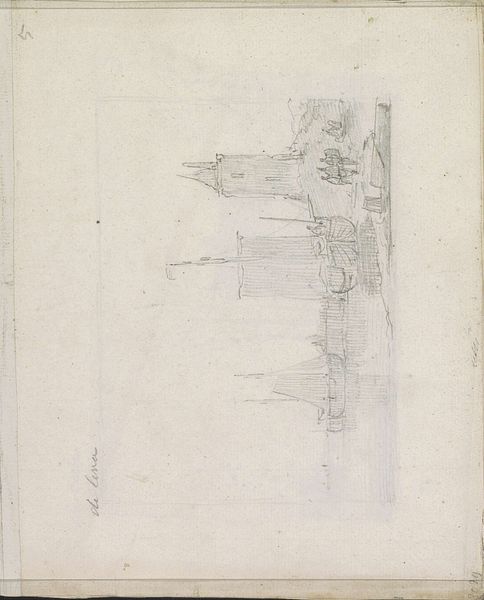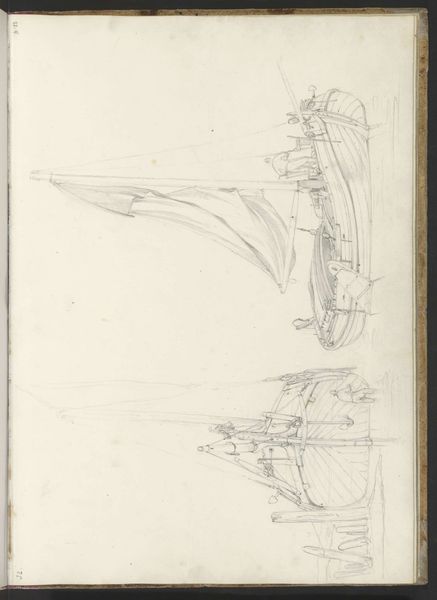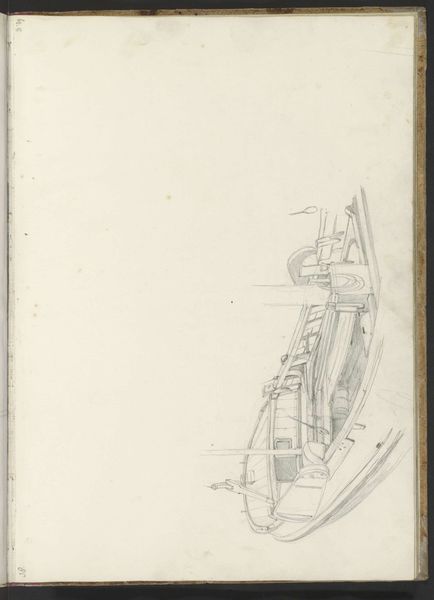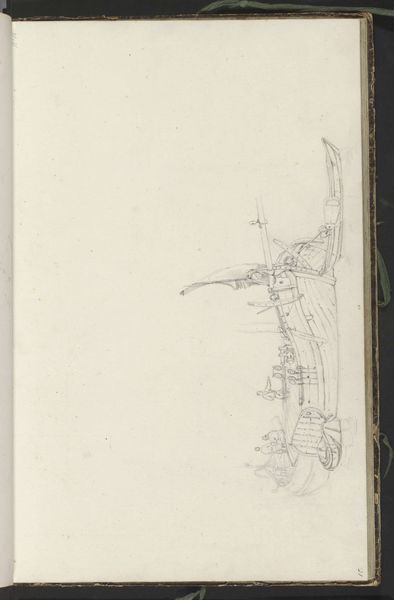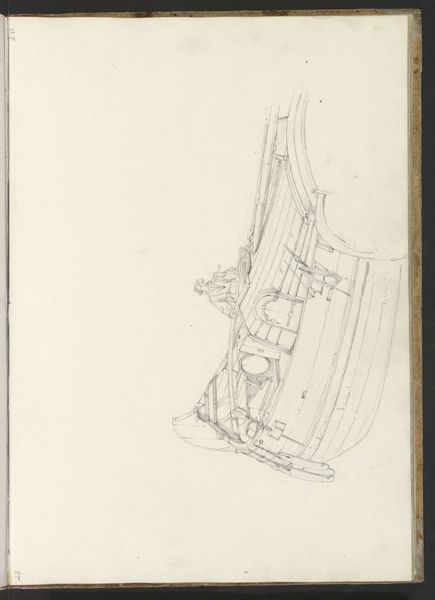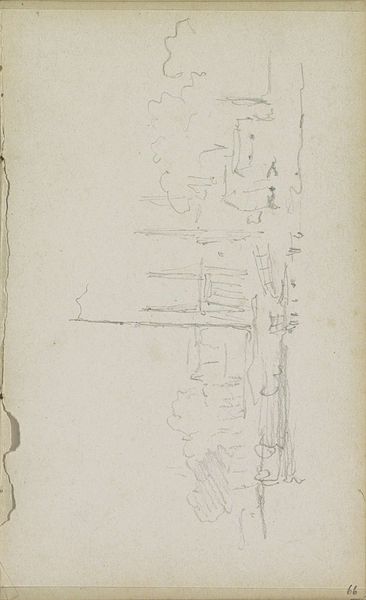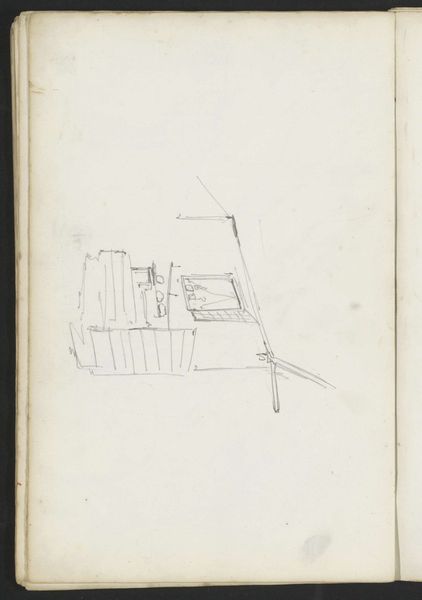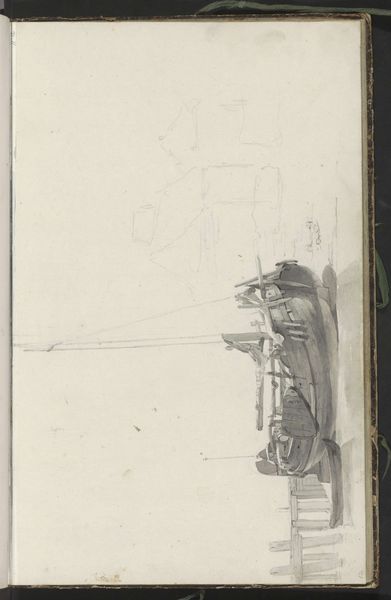
drawing, pencil
#
drawing
#
toned paper
#
quirky sketch
#
pen sketch
#
sketch book
#
incomplete sketchy
#
landscape
#
personal sketchbook
#
ink drawing experimentation
#
romanticism
#
pen-ink sketch
#
pencil
#
sketchbook drawing
#
sketchbook art
Copyright: Rijks Museum: Open Domain
Curator: Here we have Johannes Christiaan Schotel's "Zeilboot bij een meerpaal," a drawing rendered between 1797 and 1838 and held at the Rijksmuseum. Editor: What strikes me first is the sense of transience, an ephemeral quality. The pencil and ink lines are so delicate, like a fleeting memory captured on toned paper. It's remarkably fragile. Curator: Absolutely. Given Schotel’s later commitment to meticulously detailed marine paintings, it’s intriguing to see him engaging in this kind of raw, almost impulsive, sketch. The incompleteness adds a layer of intrigue, inviting speculation about its purpose. Editor: I'm drawn to the composition—the way the artist positions the mooring post dominating the right side of the paper. The lines create an interesting tension and lead the eye diagonally across to that vague shoreline opposite it. It has an unsettled rhythm, though. Curator: That diagonal evokes movement, drawing the eye toward the undefined horizon line. Perhaps that evokes a romantic sensibility about humanity’s relationship with nature. Remember that for 18th and 19th century Dutch maritime culture, ships represent not just commerce and exploration but a profound connection to the elemental forces of the sea, and therefore danger and uncertainty. Editor: Yet even within that, I sense a stillness. Despite the ship’s implied movement and activity, there’s a quiet focus. It feels introspective, maybe a moment of respite on the water. Curator: I see it. The very absence of detail seems significant, reflecting maybe the limits of our grasp, our understanding of a reality always on the move. We might want the scene neatly presented, but get instead this fragmented, incomplete vision. Editor: Looking at it again, it strikes me as less about depiction and more about capturing an essence, a gesture of maritime life. Its incompleteness serves it, making it less representational and more… evocative. Curator: It’s certainly a unique insight into Schotel's artistic process, revealing a willingness to experiment with form and perspective, which makes me think differently about his later works. Editor: Indeed. What appeared at first to be a simple sketch holds within it complex emotional and artistic undertones.
Comments
No comments
Be the first to comment and join the conversation on the ultimate creative platform.
